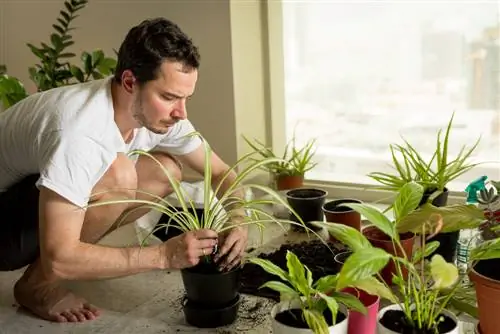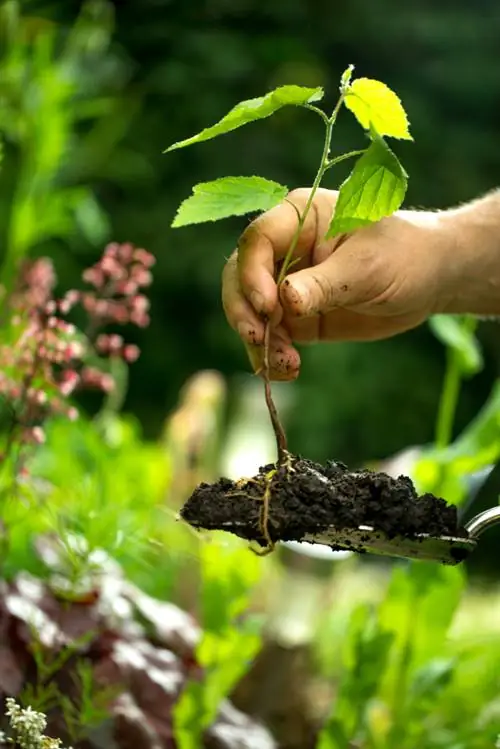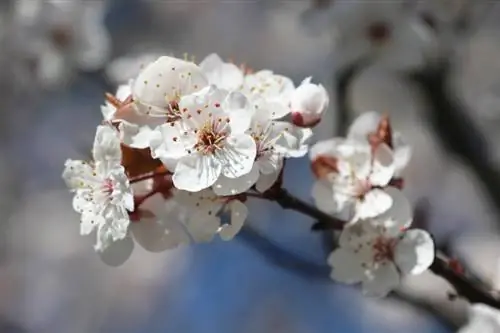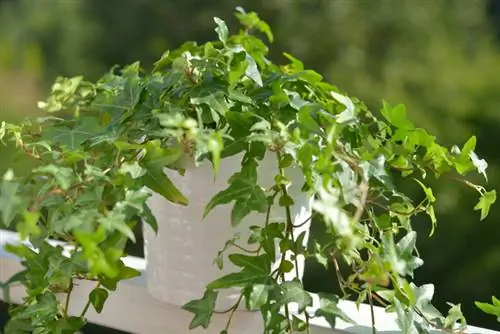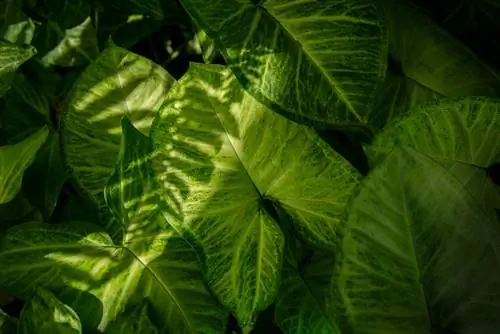- Author admin [email protected].
- Public 2024-01-05 20:48.
- Last modified 2025-01-23 11:22.
Fill a flower pot with soil, insert the houseplant and water it? Unfortunately it's not that simple. Every houseplant has individual requirements that you must take into account when caring for it. And the care begins when the plants are planted.
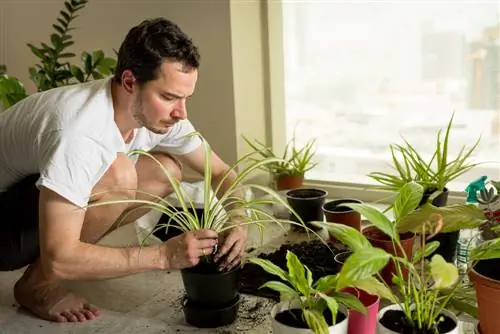
How should you plant houseplants correctly?
When planting houseplants, you should pay attention to the location, pot size, nutrient content of the substrate, and humidity. Bright locations without drafts, appropriate pot size, adjusted nutrient content and appropriate humidity are key factors for he althy plant growth.
What to pay attention to?
Although every houseplant has different requirements, the factors for he althy growth are always the same:
- Location and lighting conditions
- Bucket size
- nutrient content of the substrate
- Humidity
Location and lighting conditions
Most houseplants prefer a bright location without drafts or temperature fluctuations. Although there are also plants that thrive in the shade, every plant needs some light. Light is an essential factor for photosynthesis, in which the houseplant produces glucose, a form of sugar that it uses to generate energy. But too much sun can harm even plants that require a bright location. In particular, young plants that have just been planted in the ground quickly suffer from sunburn when exposed to direct sunlight. Therefore, be sure to shield your houseplants after planting.
The bucket size
The larger the houseplant, the larger the capacity of the pot must be. Depending on the species, it is recommended to repot the houseplant every two to three years. Alternatively, you can grow your plant in a glass of water.
nutrient content of the substrate
Plants differ between heavy and weak feeders. Over time, you will need to adjust the nutrient content of the substrate to suit the needs of your houseplant species. The most important nutrients include:
- Potassium
- Phosphorus
- and nitrogen
However, if you plant young specimens in the ground or grow your own houseplants from cuttings, too many nutrients in the substrate will mean that your sprouts will die. Nutrients change the pH of the soil and caused the tender roots to burn.
Tip
Conventional potting soil from specialist retailers is usually not designed to meet the exact needs of some houseplants. It is better to enrich the soil with organic fertilizer every now and then. For example, use coffee grounds or eggshells.
Humidity
Too high or low humidity invites pests. Orientate yourself on the origin of the plant. Tropical plants often require moist, warm air, while native species are less able to tolerate these conditions. You should always avoid heating air that is too warm and constant temperature changes.

